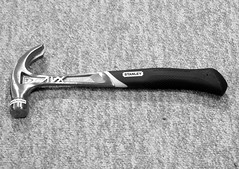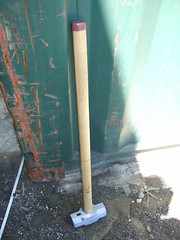When shopping for calculators, computers, tablets, televisions, cameras, and other electronics the number one question I hear asked is ‘which one is best’? This is the wrong question to ask… Or at least, an incomplete question.
Let’s go hammer shopping and I’ll show you what I mean.





So what did we learn today?
We cannot answer the question ‘which is best’ without a use case.
So ask better questions.
One problem is that most people don’t understand the the technology to know what to ask. You have to slowly walk them through their options and find out what they want to use the device for.
Which means both the user and the helper have to ask better questions.
How do we solve this?
As better questions.
EDIT: When looking for images to accompany this post I discovered that there are a lot more hammer types than I had thought. I didn’t need to go into more detail to make my point in this case, but the Art of Manliness website has a post on How to Handle a Hammer and they list 10 different hammer types, along with hammer safety and usage tips. (And this doesn’t even begin to cover war hammers, masonry hammers, judge gavels, etc.)